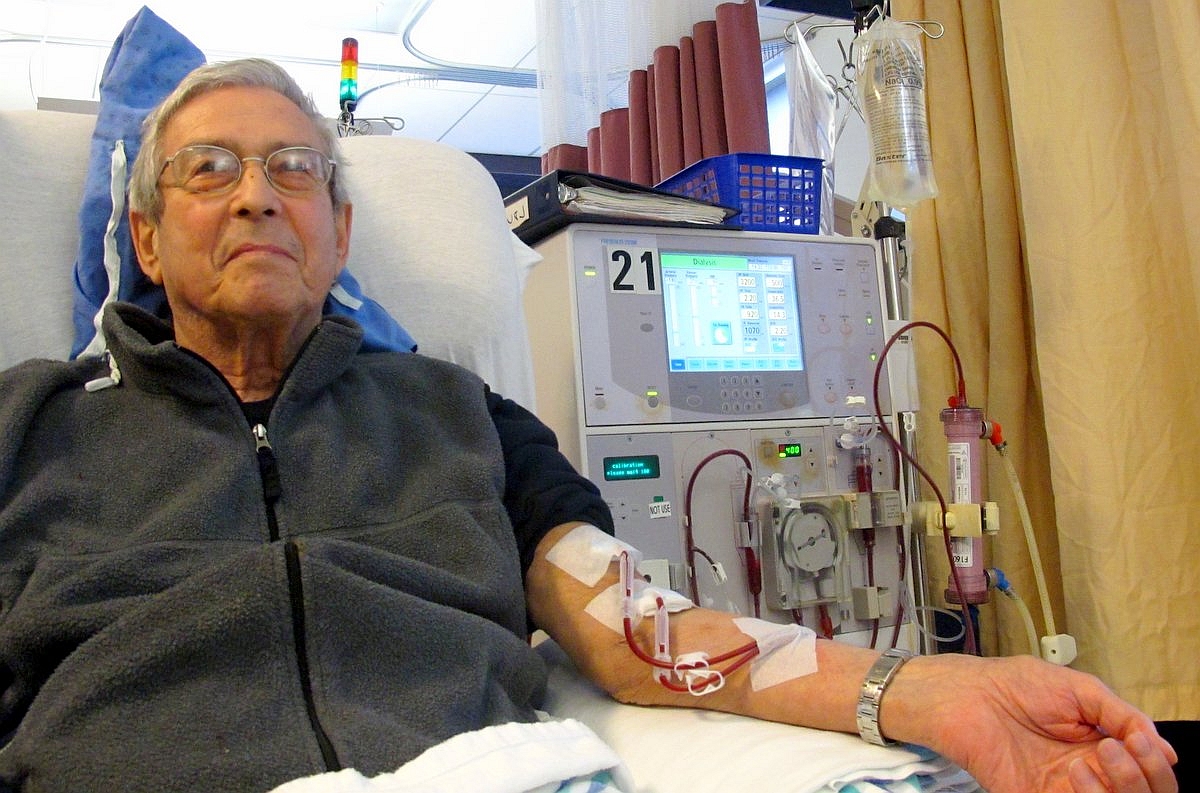It’s National Kidney Month, Nurses!
Are you thinking about becoming a dialysis nurse?
Dialysis nursing is one of the most in-demand career paths among nurses nowadays. It’s also considered as one of the highest paying specializations with an hourly rate of $32.72 (as of March 2020). It is a promising career for nurses who want to concentrate in a specialized field of nursing.
What is Dialysis Nursing?
Dialysis nursing is a nursing subspecialty under the field of nephrology nursing. By becoming a dialysis nurse, you will be skilled in handling patients with acute and chronic kidney diseases.
Additional training is required in order to be certified in providing peritoneal and hemodialysis treatments. Patients undergoing dialysis need special nursing care that is different from patient handling in wards so obtaining continuing education units is important.
Here’s a quick look at what dialysis nurses do:
The Dialysis Environment
Dialysis nursing is subdivided into three fields – the chronic, acute and peritoneal dialysis units.
Chronic dialysis
-Termed as “chronics” by nephrology nurses.
In this field of dialysis nursing, you will need to take care of patients with chronic kidney diseases that require 2-3x hemodialysis treatments per week.
Advantages:
- Regular schedule hours and no Sundays.
- Plenty of co-staff to help you in troubleshooting dialysis procedures.
- You can get to know your patients well and anticipate their healthcare needs during their scheduled hemodialysis treatment.
Disadvantages:
- You need to deal with all your assigned scheduled hemodialysis treatments for the day. It can mean catering for up to 30 hemodialysis treatments at a time.
- Plenty of RN tasks like care plans, medication list reviews, RN notes, foot checks, and many more.
Acute dialysis
-Termed as “acutes” by nephrology nurses.
In this field of dialysis nursing, you will need to take care of patients with acute kidney diseases that require immediate or emergent hemodialysis treatments.
Advantages:
- You only need to deal with 1-2 hemodialysis treatments at a time.
- You have autonomy and independence as most of the time, you are the only nephrology nurse in the unit.
- There are days where you will only need to deal with two patients for the whole shift which is a big difference when compared to chronic dialysis facilities.
Disadvantages
- No one will help you in troubleshooting hemodialysis treatments because you’re likely to be the only nephrology nurse in the unit.
- You need to take on-call hemodialysis treatment even if it means extending for another 5 hours after your 12-hour duty.
Peritoneal dialysis
This is usually an add-on task for acute dialysis facilities, but it is completely different from hemodialysis treatments. You need to set-up by afternoon or evening and remove the machine by morning the next day.
Advantages:
- Machines for peritoneal dialysis are easier to operate and troubleshoot.
- Patients undergoing peritoneal dialysis are more stable.
Disadvantages:
- 15-liter bags used in peritoneal dialysis machines are heavy to carry. You will also need to manually empty it in the toilet after each completed procedure.
Also Read: Top 10 Highest Paying Nursing Jobs
How to Pursue Dialysis Nursing
If you are already decided in pursuing this career, here’s a step-by-step guide in entering the field of dialysis nursing:
1. Become a licensed RN.
First of all, you need to become a licensed registered nurse. After completing an Associate’s Degree in Nursing or a Bachelor of Science Degree in Nursing, you will be eligible to take the NCLEX test to become a licensed registered nurse.
2. Gain relevant experience.
To become eligible for Nephrology Nursing Certification Commission, you need to gain relevant work experience related to the field of nephrology. Work experience requirement includes a minimum of 3,000 hours of experience working as a registered nurse in a nephrology unit three years prior to certification application.
You can find out more about the requirements here.
3. Upgrade your degree.
A baccalaureate degree or a master’s degree in nursing is required to become eligible for the certification of the Nephrology Nursing Certification Commission. Consider upgrading your degree before becoming certified.
4. Obtain continuing education units in nephrology.
Continuing education units in nephrology are required upon certification. You should meet a minimum of 20 contact hours of CE units in nephrology completed within 2 years before the certification application.
5. Obtain certification from Nephrology Nursing Certification Commission (NNCC)
The NNCC provides certification examinations for RNs practicing in dialysis units. Once you meet all the eligibility requirements, you can take the certification to become a Certified Dialysis Nurse (CDN).

Also Read: Top 10 Nursing Schools in the US
Opportunities for Career Growth and Advancement
Pursuing dialysis nursing may lead to more opportunities for career growth and advancement like the following:
• Become specialized in a subfield.
You can get specialized in providing care to certain group populations like adult, pediatric or geriatric dialysis nursing. You can also build your expertise in specific clinical areas like continuous renal replacement therapy, palliative care, and organ transplantation.
• Get promoted to higher positions.
As you build your credibility in dialysis nursing, you can be promoted to supervisory positions like organ recovery or transplant coordinator and nurse manager. You can also shift to higher positions outside the clinical setting like in academe and research.
• Enter Advanced Practice Nursing.
Dialysis nurses with masteral or doctoral degrees can pursue certification as advanced practice nurses. Through this pathway, you can act as a primary care provider for patients with kidney diseases. Once certified, advanced practice nurses can write prescriptions and perform procedures under their specialty. It is similar to what doctors do but with imposed limitations in some states.
• Practice Nephrology Case Management.
Some well-experienced dialysis nurses move to nephrology case management. In this field, you will need to be an advocate of a kidney patient’s care. You will provide counseling sessions with the patient and the patient’s family. You are responsible for ensuring the patient’s continuity of care.

Also Read: 8 Best US Cities for Nurses to Work in
Becoming a dialysis nurse is a series of lifelong learning and skills development. Certification is not immediately required once you enter this field so feel free to explore it as you start your career. Some nurses find this field rewarding after transitioning from other fields like hospice care and geriatric nursing.
It is never too late to get started with dialysis nursing as long as you are determined to excel in this field.



















